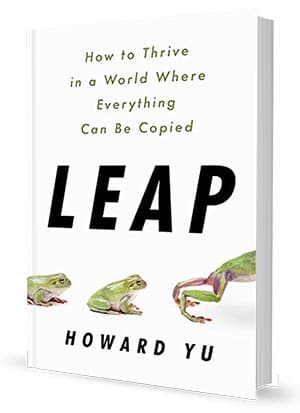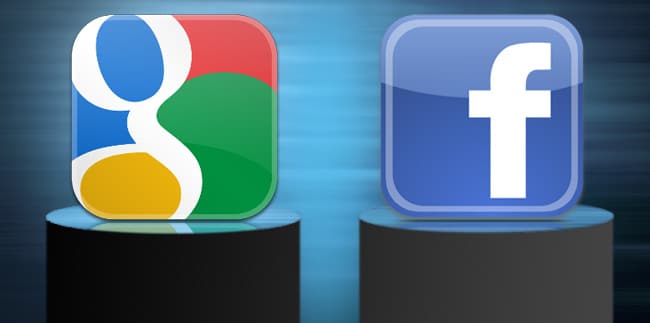Facebook’s decision to integrate WhatsApp and Instagram is About expanding its “network effect”
Internet companies are often dubbed the “fruit flies” of the business world. Change is rapid, life cycles are short, and there’s not much room for mistakes. Misreading the market once can lead to diminished earnings; misreading it a few times can send the company packing. And that’s perhaps why Mark Zuckerberg’s insistence on integrating WhatsApp and Instagram—which both ran independently and grew tremendously without Facebook’s oversight—has generated much controversy in the media and anxiety among the company’s executives. What could be Zuckerberg’s rationale for bringing WhatsApp and Instagram closer into the fold of Facebook? Is it a good strategy?
Facebook, Google, Amazon, Alibaba, Uber, and Airbnb are all platform businesses. Among economists and academics, the “network effect” is a common term to explain the value of a platform that depends on the number of users on either side of the exchange. The more users Facebook has, the more attractive it becomes to a news outlet like The New York Times to post articles on, leading even more users to join Facebook. And once a platform reaches a certain size, it’s thought to be too dominant to be dethroned by a challenger. That’s why we see Google dominating in the realm of search engines, Facebook in social networks, Twitter in microblogging, and YouTube in video-sharing.
But size, it turns out, is more a consequence of success than the direct source of it. Mighty Uber, for instance, had to bow out of Southeast Asia by selling its operation in several countries to local rival Grab last year. TikTok—a media app for creating and sharing short videos—prospers in India despite SnapChat and YouTube. And currently, Toutiao is defying WeChat to become China’s most popular news platform. The reason why these smaller challengers, especially during their early days, manage to thrive despite the lack of a “network effect” against the existing giants is that being small allows them to spur initial growth: They can pay unrelenting attention to their chosen market segment.
Anthony Tan, co-founder and chief executive of Grab, saw that it was imperative to understand and build regional distinctions into his product. In the Philippines, where eight major dialects are spoken, a representative will speak in the local dialect when someone calls Grab’s customer service. Passengers can also text drivers via a chat with an automatic translation feature. Instead of forcing drivers to accept credit card payments in the name of “frictionless” transactions, Grab embraces cash. In other parts of Asia, where a lack of trust and scanty safety records plague the taxi industry, Grab lets riders retrieve drivers’ police records through the app and share their routes and license plate numbers with friends and family. The app also masks passengers’ phone numbers on the driver’s end as an additional safety precaution. Though none of these local tweaks can be claimed as technological breakthroughs, they have collectively helped Grab win over local consumers and ultimately threw Uber out of Southeast Asia.
Why didn’t Uber pay more attention to the local needs? “There are always millions of things to make the company better. But we have to always prioritize,” a former Uber manager told me. “There had been much fire-fighting on the regulatory situation with government meetings, or cash-collection issues, or tax debates, whether Uber should be treated as an onshore or a purely internet-based company. All these demand immediate attention, which crowds out other less pressing agendas.” The other agendas, in this case, are the top priorities at Grab.
But what Uber has that Grab doesn’t is money and engineers dedicated to data intelligence. Using a machine-learning approach, Uber offers, for example, one group of drivers the existing reward scheme and another group a different one, learning about the drivers’ behaviors and fine-tuning its bonus scheme to be more cost-effective, all without human intervention. “You can do this by hand in one market, but you can’t do this fast enough across ten countries simultaneously without a smart algorithm working around the clock. This sort of smart automation is what Uber does well, not product localization,” I was told.
The idea of pooling data across countries to advance data analytics and develop smart algorithms is also why Mark Zuckerberg reverted his earlier decision to keep Instagram and WhatsApp separate and to now integrate them back into Facebook. The only real advantage of a big tech company is humdrum data analytics and its automation, not fearsome entrepreneurship in a new market segment. Facebook didn’t invent Instagram or WhatsApp; it bought them. Google didn’t invent YouTube or Waze; it bought them. Amazon didn’t invent Zippo, nor did Apple invent Beats headphones.
None of these observations matter except that the argument against breaking up big-tech companies is that their monopolistic position is “natural,” that they are forging innovation rather than impeding it. But if big tech can only grow by swallowing up entrepreneurial upstarts and arriving at its existing advantages through “data integration” to the point of invading consumer privacy, then it’s not so different from the age-old industry consolidation in terms of these monopolies charging higher prices and thus affecting consumer well-being. A different narrative calls for a different societal response.

Outlast your competition and thrive in an ever-changing world
In Leap, Howard Yu, LEGO professor of strategy and innovation at IMD, explains how companies can prosper, not just survive. Leap identifies five fundamental principles that allow companies to stay successful in the face of such competition.


